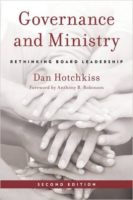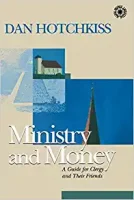
It’s good to pay attention to what’s going well. Most congregations—like most people—can accomplish more by building on their strengths than worrying about how to fix everything that could be better. That’s the basic insight of Appreciative Inquiry and other asset-based approaches to strategic planning: Instead of asking “What’s the matter?” ask, “What’s good? What’s going well?”
Sometimes that’s all it takes. But at other times, wise leaders need to add an extra twist and ask, “What’s good about this?” This simple question takes appreciation to a higher level.
For example, I consulted with a church whose strength, everyone agreed, was in its music program. Every Sunday, a superb suite of sacred music rose up from the chancel: organ, solo voice, and choir, with regular appearances by guest professionals. Surveys of the congregation showed high rates of satisfaction. Following the maxim “build on strength,” the church concentrated its resources on raising the level of musical excellence higher and higher.
The church was succeeding … well, not really. It was at that perilous point where all seemed to be well unless you looked closely at the numbers. Membership, attendance, and the number of contributors all had declined in the last decade. But the budget wasn’t suffering, thanks to generous giving by some older members and two timely bequests. In fact, the church’s money situation had substantially improved. You could see a crisis coming if you looked, but with such good feeling in the congregation, few were inclined to do so.
The most apparent blemish in this pretty picture was that pastors came and went, often in frustration with what they saw as a lopsided emphasis on music. “Why can’t we build up the Sunday school,” they asked, “or the outreach ministries, or the women’s fellowship to match our music?”
In response to this line of criticism, the church endured rounds of mission-writing, vision-casting, and denomination-wide renewal efforts, each of which made small differences but never large ones. There seemed to be no way to transfer the well-developed competence in music over to those other program areas.
What finally made a larger difference was the exercise of asking, after celebrating what was good, “What’s good about that?” And then—no matter what the answer—the next question was the same: “What’s good about that?”
Regarding music, the first round of answers included a description of the current program, its admirers, and their testimony to its spiritual, esthetic, and cultural benefits. The answer was so well-rehearsed and eloquent, it was a little shocking to be asked, “What’s good about that?”
After a pause, the people tried again. They spoke about the pride they felt, belonging to a church with such a name for music. Some older folks remembered when the “movers and shakers” of the city, the elite, belonged. Pressed to say “What was good about that?” they talked about the moral influence the church had had on civic life in those days.
“So,” someone observed, “we’re not just a congregation with great music. What’s good about that—or was good—is that we used classical music to make us attractive, so that, forty years ago, we gathered a significant subset of the city’s leaders.”
Someone who had caught the spirit of the game asked, “And just what exactly was so good about that?”
“That was good because it made the church a vehicle for the values of our faith to have an influence in the community. Why I remember, back in 1973, there was a move to stop teaching evolution in the schools….”
They were off on yet another rabbit-chase down memory lane. When they returned, though, they were ready for a different kind of conversation, framed not by the question, “Why don’t young people come to hear great music?” but a different one: “What influence would we like our faith to have in the community today, and how can we gather a community of leaders who can make that happen?”
The congregation’s strength in music was no longer an end in itself, but an asset in the service of a higher sense of purpose, rooted in the past but not determined by it. Ideas started to pop up about how, in ways both musical and not, the church might seek to make a difference in the city of today.
Change needs to be organic, especially where the native soil is old and deep. Planning for the future needs to start with an appreciative examination of the past and present. The most effective planning starts with questions like, “When have we had a positive effect on our community?” and “What do we do best?”
It’s good to pay attention to what’s going well, but right now many congregations do what they do diligently without seeing the results they once did. And they wonder: What’s wrong? How can we fix it?
One not-so-helpful answer is that the world has changed so radically that old-style synagogues and churches are just doomed. Unless you’re willing to tear out the pipe organ, replace it with a drum set, and run amplifier wire all over the chancel, your church might as well just die.
But it’s much easier to found new congregations based on new ideas than it is to graft them onto an established one. That’s why appreciative techniques feel so good—and why sometimes the ideas they produce are too tame to bring real vitality. Affirming strength—good as it feels—is sometimes not enough.
One question may be all it takes to move us beyond pointless self-congratulation. After we count our gifts and blessings, we can say “That’s good,” then take a critical half-step back and ask, “Okay. But exactly what about that is so good?”
Dan Hotchkiss has consulted with a wide spectrum of churches, synagogues, and other organizations spanning 33 denominational families. Through his coaching, teaching, and writing, Dan has touched the lives of an even wider range of leaders. His focus is to help organizations engage their constituents in discerning what their mission calls for at a given time, and to empower leaders to act boldly and creatively.
Dan coaches leaders and consults selectively with congregations and other mission-driven groups, mostly by phone and videoconference, from his home near Boston. Prior to consulting independently, Dan served as a Unitarian Universalist parish minister, denominational executive, and senior consultant for the Alban Institute.


